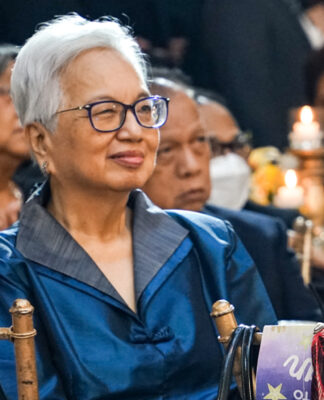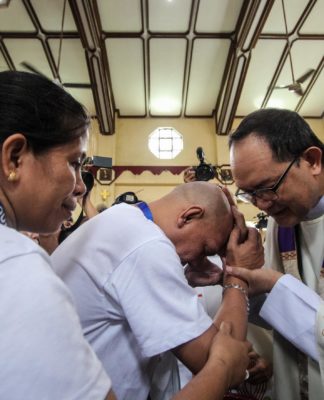“UY, TUMABA ka!”
This phrase has become standard greeting between friends who have not seen each other for ages. Though it may be impolite, the fact it is often heard in presumably polite circles should indicate not only a contagion of impolite remarks but also of obesity.
As of 2015, three out of 10 Filipino adults were said to be obese, data from the National Nutrition Council disclosed. This has been a steady increase in the Philippines for the past two decades. In 1995, only 16.6 percent of Filipino adults were obese, but in recent years, the percentage has reportedly climbed to a staggering 31.1 percent.
Despite society being more open to diversity, being fat remains an object of ridicule.
Last March, the Movie and Television Review Classification Board (MTRCB) slapped an “X-rating” on an independent film for its seemingly demeaning title.
”Ang Taba ko Kasi,” a full-length film entry to the 2016 CineFilipino film festival directed by Jason Paul Laxamana, is a comedy which centers on a plus-sized woman’s quest to trim down.
The main character, played by Cai Cortez, ventures into swimming and gets infatuated with her buff instructor.
Cortez, whom I personally deem to be the perfect representation of strong, “horizontally challenged” women, portrayed a role which spoke to all types of audiences, hitting one of the many taboo topics in the Philippines: weight.
MTRCB decided to hand out the X-rating on the grounds of discrimination, saying the film employed “strong offensive language/insult on the appearance of a person.”
With this, Laxamana and Cortez, coincidentally both plus-sized individuals, openly expressed their dismay. Cortez took to social media her grief, saying the word “taba” is a description, not an insult.
“Pwede pong paki-explain, MTRCB? Taba is a description,” she wrote in her Instagram. “It is not an insult. Same as payat, tangkad, liit, may mas malalala pa ngang trailer galing sa ibang bansa o sikat na pelikula dito na paulit-ulit na ina-advertise sa theaters eh. What is so offensive with ours that you labeled it [with an X-rating]? Would you have done the same if our title was ‘Ang Payat Ko Kasi’?”
Now, the only question to be answered is: As a fat person, will you be offended by the film’s title?
It is ironic that despite the acceptance of almost all the minority groups in today’s society, like gay people and immigrants, fat people have seemingly failed to get “tolerance” from other people.
I am not in any way implying that fat people are a minority, but the way the society describes and treats fat people is in no way accepting. Now, more than ever, it is crucial to always bear in mind how fat people should not be at the receiving end of jokes, let alone ridicule. The Philippines harbors a considerable population of fat people. But beyond that, Filipinos must change their own mindset and adjust to a more tolerant perspective of various kinds of people. If we begin to accept other people, it will create a harmonious environment for all people involved.
How many companies have capitalized on the theory that fat people are not beautiful? That apparently one can only be pleasing to the eye when he or she wears a size small?
Or that when a fat person does eventually want to improve his or her lifestyle by eating healthy food or going to gym, society will always be quick to judge, let alone ridicule, the said efforts?
However, fat people are not the only ones who are obese, but rather the condition affects people who are not evidently fat. There is such a thing called as “thin-outside-fat-inside (TOFI)” which describes how thin individuals who have disproportionate amount of body fat. People who are TOFI are at a higher risk of type two diabetes, among other diseases.
Therefore, what people need to do then, regardless of their waistline, is to develop a healthy and balanced lifestyle.
Individuals cannot preach that they believe “everybody is beautiful,” when they themselves complain aloud how, for an instance, a fat person they sit next to in a jeepney should pay for two seats.
In our age where acceptance and tolerance have been the norm, is it really too much to ask to extend the same courtesy to fat people? Just like any kind of form of prejudice, discrimination based on a person’s “size” needs to end.
It does not mean that if you are fat, you are also lazy, undisciplined, unhealthy, or a burden to the society.
Filipinos can leave the theaters with more than a healthy laugh after watching a movie about a fat woman’s dream to trim down her shape, perhaps with a real sense of understanding for every type of individual—no matter how big or small.

















